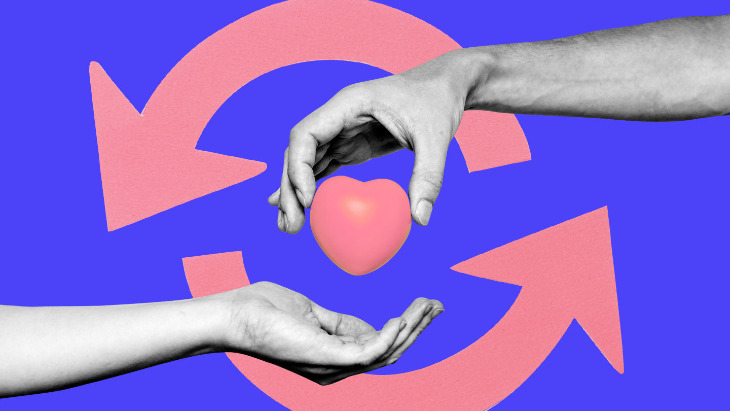 Iran’s Attack on Israel
Iran’s Attack on Israel


5 min read
The remarkable interplay between giving and receiving.
Thanksgiving may not be an official holiday on the Jewish calendar but its purpose is as Jewish an idea as you could ever imagine. Thanking God for our blessings is the first thing we do as soon as we open our eyes.
Our very descriptive, Jew, comes from the Hebrew name of Judah – a name given to him by his mother as an expression of gratitude for being given what she thought was even more than she deserved.
A student asked me an interesting question about the name Thanksgiving. Aren’t there two different concepts implicit in the word Thanksgiving? Thanks has to do with the response to receiving. Giving, on the other hand, is the opposite of taking; it is philanthropic, it is generous, it is openhanded.
We make a living by what we get, we make a life by what we give.
Perhaps there is a very profound idea concealed in the name of the day. We thank and we give so that we can demonstrate our understanding of the beautiful insight expressed by Winston Churchill: “We make a living by what we get, we make a life by what we give.”
Philosophers have argued whether it's better to give or to receive. Today we have the benefit of remarkable scientific studies which prove that altruism is not simply a moral value. Research has shown that giving makes us far happier than receiving. Thus, in a way, we are actually being both selfish and selfless by giving to others.
Numerous studies have shown that giving money to others or to charity will put a much bigger smile on your face than spending on yourself. Michael Norton, a professor at Harvard Business School, conducted one such study. Along with his colleagues, Norton questioned 632 Americans about their level of income and what they spent their money on. They were also asked to rate their own happiness. They found that, regardless of income, those who spent money on others were decidedly happier than those who spent more on themselves.
Psychologists from the University of Chicago Booth School of Business and Northwestern University Kellogg School of Management, carried out a series of experiments to see which brought the longest-lasting joy – giving a gift to yourself or to others. In one of the experiments, 96 participants received $5 every day for five days and were randomly assigned to spend the money on themselves or on someone else. This could be by leaving money in a tip jar at a café or making an online donation to charity every day, but they had to spend the money on the exact same thing each time.
The findings, published in the journal Psychological Science, showed that when they repeatedly gave to others, the participants’ happiness did not decline, and the joy they felt from giving to others on the fifth day was just as strong as on the first day.
Paul J. Zak, a professor at Claremont Graduate University reported in Psychology Today that he “has been investigating the biological basis for generosity, focusing on the neuroactive hormone oxytocin.” He began this study because he wondered if science could explain the extraordinary generosity of billions of dollars of wealth and time donated. Zak’s conclusion is contrary to historical evolutionary thinking and reflects a Jewish value: “Oxytocin connects us to others and social connections are a powerful way to increase one’s own happiness. If you want to connect to others, being generous is a great start.”
By giving, we at the same time receive.
Not surprisingly, serving family and friends has similar health benefits despite the stress of becoming a family caregiver. People who provided practical help to friends, relatives, or neighbors, or who gave emotional support to their spouses, had a reduced mortality risk over a five-year period. The benefit was not limited to one condition, but was spread across a lengthy list of health risks from stress.
I think it is highly revealing that there are two words in English which seem to be antonyms yet in fact refer to one and the same person. Someone who extends needed help to the disabled and to those who otherwise cannot take care of themselves is called a caregiver. However another name for this very same individual is caretaker. Giver and taker are not contradictory. By giving, we at the same time receive. The gift of being a blessing is transformed into personal gratification beyond measure; caregivers are turned into caretakers in the form of a divine blessing.
The name Thanksgiving manages to convey the duality of our responses to the gifts we acknowledge from the Almighty. Yes, we need to give thanks for the love and compassion God has shown us in our lives. And our thanks must be accompanied by giving. Doing both will entitle us to be blessed both as caretakers and caregivers.
